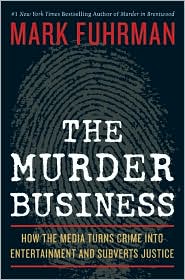Spokesman-Review Editor Steve Smith has started a new thread “Managing Change.” Senior Editor Carla Savalli just returned from a summit meeting convened by the Committee of Concerned Journalists (CCJ):
The committee brought together in Washington, D.C., a small group of super-star editors to help the organization develop training and consulting programs to help newsrooms manage the changes they must undertake to survive the new era.
I have great respect for the CCJ having heard a lecture of one of their founding members. I challenged the S-R to follow their lead with this comment.
Det. Ron Wright (Retired)
*****
Mr. Smith,
There was a long discussion this and related topics in your post:
I attended a lecture by one of the founders of the Committee of Concerned Journalists several years ago. Many of my beliefs/opinions of what the MSM must do to regain its credibility – read sustainability in light of the new media, is found in CCJ’s three goals regarding instituting a national discussion of what core journalism principles should be:
1. To clarify and renew journalists’ faith in the core principles and function of journalism.
2. To create a better understanding of those principles by the public.
3. To engage and inform ownership and management of these principles and their financial as well as social value.
This led to the distilling of the following nine principles:
There are, we have distilled from our search, some clear principles that journalists agree on — and that citizens have a right to expect. They are principles that have ebbed and flowed over time, but they have always in some manner been evident. They are the elements of journalism.The first among them is that the purpose of journalism is to provide people with the information they need to be free and self-governing.
To fulfill this task:
1. Journalism’s first obligation is to the truth.
2. Its first loyalty is to citizens.
3. Its essence is a discipline of verification.
4. Its practitioners must maintain an independence from those they cover.
5. It must serve as an independent monitor of power.
6. It must provide a forum for public criticism and compromise.
7. It must strive to make the significant interesting and relevant.
8. It must keep the news comprehensive and proportional.
9. Its practitioners must be allowed to exercise their personal conscience.
I alluded to these principles in the discussions regarding the S-R new code of ethics whether this is a mere PR ploy or a serious effort by the S-R to regain credibility in the eyes of the readers.
The second concern goes to the heart of a Code of Ethics re a major regional newspaper of record. The question is how to restore editorial integrity that separates the business interests of the owners from the newsroom floor. Historically there is a bright line between editorial content and the business side of a paper. In our unique circumstance a similar bright line needs to be drawn between editorial control and the owners of the paper to have any credibility with the readers.[…]
Even the Washington News Council recommended that the S-R separate itself from the Cowles Co attorney, Duane Swinton of Witherspoon & Kelley because of inherent conflicts of interests. This was recently evident in the withholding of more RPS documents from public disclosure. Witherspoon & Kelley were objecting to this release on behalf of the owners of the Cowles Co.
[…]
Because of the significant amount of property that the Cowles Co owns or controls in Downtown Spokane and along the Spokane River to the Idaho border, there inherently is a conflict of interest regarding its involvement in development projects and reporting by the S-R. [See the Fancher Report]
Det. Ron Wright (Retired)
Posted by Det. Ron Wright (Retired) | 20 Mar 9:56 AM

